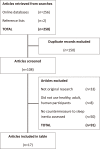Time to wake up: reactive countermeasures to sleep inertia
- PMID: 27193071
- PMCID: PMC5136610
- DOI: 10.2486/indhealth.2015-0236
Time to wake up: reactive countermeasures to sleep inertia
Abstract
Sleep inertia is the period of impaired performance and grogginess experienced after waking. This period of impairment is of concern to workers who are on-call, or nap during work hours, and need to perform safety-critical tasks soon after waking. While several studies have investigated the best sleep timing and length to minimise sleep inertia effects, few have focused on countermeasures -especially those that can be implemented after waking (i.e. reactive countermeasures). This structured review summarises current literature on reactive countermeasures to sleep inertia such as caffeine, light, and temperature and discusses evidence for the effectiveness and operational viability of each approach. Current literature does not provide a convincing evidence-base for a reactive countermeasure. Caffeine is perhaps the best option, although it is most effective when administered prior to sleep and is therefore not strictly reactive. Investigations into light and temperature have found promising results for improving subjective alertness; further research is needed to determine whether these countermeasures can also attenuate performance impairment. Future research in this area would benefit from study design features highlighted in this review. In the meantime, it is recommended that proactive sleep inertia countermeasures are used, and that safety-critical tasks are avoided immediately after waking.
Figures
Similar articles
-
Exercising Caution Upon Waking-Can Exercise Reduce Sleep Inertia?Front Physiol. 2020 Apr 7;11:254. doi: 10.3389/fphys.2020.00254. eCollection 2020. Front Physiol. 2020. PMID: 32317980 Free PMC article.
-
Duration of sleep inertia after napping during simulated night work and in extended operations.Chronobiol Int. 2012 Jul;29(6):769-79. doi: 10.3109/07420528.2012.686547. Chronobiol Int. 2012. PMID: 22734577
-
Alarm tones, music and their elements: Analysis of reported waking sounds to counteract sleep inertia.PLoS One. 2020 Jan 28;15(1):e0215788. doi: 10.1371/journal.pone.0215788. eCollection 2020. PLoS One. 2020. PMID: 31990906 Free PMC article.
-
On-call work and sleep: the importance of switching on during a callout and switching off after a call.Ind Health. 2022 Apr 1;60(2):91-96. doi: 10.2486/indhealth.2021-0124. Epub 2021 Oct 25. Ind Health. 2022. PMID: 34690251 Free PMC article. Review.
-
Sleep Inertia in Aviation.Aerosp Med Hum Perform. 2024 Apr 1;95(4):206-213. doi: 10.3357/AMHP.6343.2024. Aerosp Med Hum Perform. 2024. PMID: 38486319 Review.
Cited by
-
Exercising Caution Upon Waking-Can Exercise Reduce Sleep Inertia?Front Physiol. 2020 Apr 7;11:254. doi: 10.3389/fphys.2020.00254. eCollection 2020. Front Physiol. 2020. PMID: 32317980 Free PMC article.
-
Fatigue-related risk management in the emergency department: a focus-group study.Intern Emerg Med. 2018 Dec;13(8):1273-1281. doi: 10.1007/s11739-018-1873-3. Epub 2018 May 18. Intern Emerg Med. 2018. PMID: 29777436
-
A preliminary framework for managing sleep inertia in occupational settings.Sleep Adv. 2023 Nov 18;4(1):zpad050. doi: 10.1093/sleepadvances/zpad050. eCollection 2023. Sleep Adv. 2023. PMID: 38046222 Free PMC article. Review.
-
Sleep inertia: current insights.Nat Sci Sleep. 2019 Aug 22;11:155-165. doi: 10.2147/NSS.S188911. eCollection 2019. Nat Sci Sleep. 2019. PMID: 31692489 Free PMC article.
-
Alarm Tones, Voice Warnings, and Musical Treatments: A Systematic Review of Auditory Countermeasures for Sleep Inertia in Abrupt and Casual Awakenings.Clocks Sleep. 2020 Oct 20;2(4):416-433. doi: 10.3390/clockssleep2040031. Clocks Sleep. 2020. PMID: 33118526 Free PMC article. Review.
References
-
- Lubin A, Hord DJ, Tracy ML, Johnson LC (1976) Effects of exercise, bedrest and napping on performance decrement during 40 hours. Psychophysiology 13, 334–9. - PubMed
-
- Tassi P, Muzet A (2000) Sleep inertia. Sleep Med Rev 4, 341–53. - PubMed
-
- Jewett ME, Wyatt JK, Ritz-De Cecco A, Khalsa SB, Dijk DJ, Czeisler CA (1999) Time course of sleep inertia dissipation in human performance and alertness. J Sleep Res 8, 1–8. - PubMed
-
- Tietzel AJ, Lack LC (2001) The short-term benefits of brief and long naps following nocturnal sleep restriction. Sleep 24, 293–300. - PubMed
Publication types
MeSH terms
Substances
LinkOut - more resources
Full Text Sources
Other Literature Sources
Research Materials
Miscellaneous


